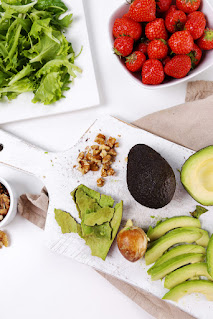In today's
health-conscious world, the ketogenic diet, or keto diet for short, has gained
immense popularity. This low-carb, high-fat diet promises not just weight loss
but a host of health benefits. If you're curious about keto and its potential
to revolutionize your health, you've come to the right place. In this
comprehensive guide, we will delve into the intricacies of the keto diet, from
its fundamentals to its remarkable effects on your body. Get ready to embark on
a journey towards a healthier you!
What Is the Keto Diet?
Understanding the Basics
At its core, the keto diet is a dietary approach that restricts
carbohydrate intake while emphasizing the consumption of fats. The goal is to
induce a metabolic state called ketosis, where your body primarily burns fat
for fuel instead of carbohydrates. This shift in energy source is what makes
the keto diet unique and effective.
The Science Behind Ketosis
How Ketosis Works
When you reduce your carb intake significantly, your body's
glucose reserves become depleted. As a result, your liver starts converting
fats into molecules known as ketones. These ketones serve as an alternative
fuel source for your body and brain. This metabolic adaptation is the
cornerstone of the keto diet's success.
Benefits of Ketosis
Weight Loss
One of the most prominent benefits of ketosis is rapid weight
loss. With your body in a constant fat-burning mode, shedding excess pounds
becomes more manageable. Plus, ketones suppress appetite, making it easier to
maintain a calorie deficit.
Improved Mental Clarity
Ketones are not only fuel for your muscles but also for your
brain. Many keto enthusiasts report enhanced mental clarity, focus, and
cognitive function.
Getting Started with Keto
Creating Your Keto Meal Plan
Embarking on a keto journey starts with a well-thought-out meal
plan. Focus on foods rich in healthy fats like avocados, nuts, and olive oil.
Incorporate moderate amounts of protein from sources like lean meats, fish, and
eggs. And, of course, keep your carb intake low, preferably below 20-50 grams
per day.
Monitoring Your Macros
To maintain ketosis, it's crucial to track your
macronutrients—fats, proteins, and carbohydrates. Numerous apps and online
tools can help you calculate and monitor your daily intake.
Keto-Friendly Foods
Healthy Fats
- Avocado: A creamy source of healthy fats
that can be used in various dishes.
- Coconut Oil: Known for its medium-chain
triglycerides (MCTs), which are quickly converted into ketones.
- Olive Oil: Rich in monounsaturated fats, a
staple in Mediterranean diets.
Protein Sources
- Salmon: A fatty fish loaded with
omega-3s and protein.
- Chicken Breast: Lean and versatile for keto
recipes.
- Eggs: Packed with protein and
essential nutrients.
Low-Carb Vegetables
- Spinach: A nutrient powerhouse with
minimal carbs.
- Broccoli: High in fiber and low in net
carbs.
- Cauliflower: A versatile substitute for
high-carb foods.
Overcoming Keto Challenges
The Keto Flu
When transitioning into ketosis, some individuals experience
flu-like symptoms known as the keto flu. This temporary discomfort can be
mitigated by staying hydrated, increasing electrolyte intake, and getting
adequate rest.
Social Situations and Keto
Dining out or attending social gatherings can pose challenges
for keto dieters. However, many restaurants now offer keto-friendly options,
and there are various strategies for navigating such situations without
derailing your diet.
Long-Term Sustainability
Making Keto a Lifestyle
Keto is not just a diet; it's a lifestyle. To experience its
full benefits, it's essential to commit to it long-term. This means finding a
balance that works for you, staying mindful of your carb intake, and regularly
assessing your progress.
Conclusion
The keto diet is not a one-size-fits-all solution, but for many,
it has been a game-changer in achieving weight loss, mental clarity, and
overall well-being. By understanding the science behind ketosis, adopting the
right mindset, and making keto a sustainable part of your life, you can unlock
the potential of this transformative dietary approach.
FAQs About the Keto Diet
1.
Is the keto diet safe for
everyone?
- The
keto diet may not be suitable for individuals with certain medical
conditions, so it's essential to consult with a healthcare professional
before starting.
2.
Can I eat fruits on the keto
diet?
- While
fruits are generally higher in carbs, some low-carb options like berries
can be consumed in moderation on the keto diet.
3.
How long does it take to reach
ketosis?
- It
varies from person to person, but typically, it takes a few days to a
week of strict carb restriction to enter ketosis.
4.
Are there any side effects of
the keto diet?
- Some
people may experience the keto flu initially, but most side effects are
temporary and can be managed.
5.
Is the keto diet suitable for
vegetarians and vegans?
- Yes,
with proper planning, vegetarians and vegans can follow a keto diet by
focusing on plant-based fats and proteins.
Incorporating these FAQs into your keto journey can help you
make informed decisions and enjoy the benefits of this transformative diet.
